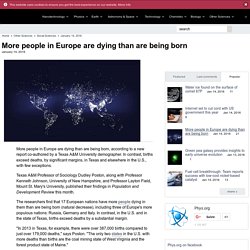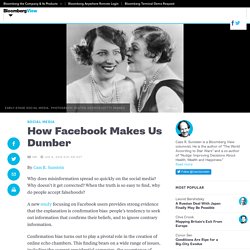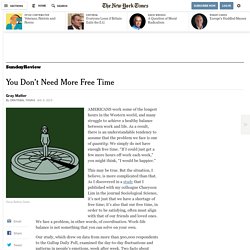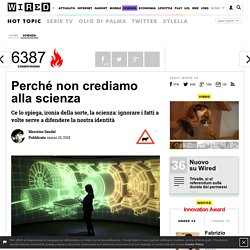

More people in Europe are dying than are being born. More people in Europe are dying than are being born, according to a new report co-authored by a Texas A&M University demographer.

In contrast, births exceed deaths, by significant margins, in Texas and elsewhere in the U.S., with few exceptions. Texas A&M Professor of Sociology Dudley Poston, along with Professor Kenneth Johnson, University of New Hampshire, and Professor Layton Field, Mount St. Mary's University, published their findings in Population and Development Review this month. The researchers find that 17 European nations have more people dying in them than are being born (natural decrease), including three of Europe's more populous nations: Russia, Germany and Italy. In contrast, in the U.S. and in the state of Texas, births exceed deaths by a substantial margin. "In 2013 in Texas, for example, there were over 387,000 births compared to just over 179,000 deaths," says Poston. How Facebook Makes Us Dumber.
Why does misinformation spread so quickly on the social media?

Why doesn’t it get corrected? When the truth is so easy to find, why do people accept falsehoods? A new study focusing on Facebook users provides strong evidence that the explanation is confirmation bias: people’s tendency to seek out information that confirms their beliefs, and to ignore contrary information. Confirmation bias turns out to play a pivotal role in the creation of online echo chambers. This finding bears on a wide range of issues, including the current presidential campaign, the acceptance of conspiracy theories and competing positions in international disputes. The new study, led by Michela Del Vicario of Italy’s Laboratory of Computational Social Science, explores the behavior of Facebook users from 2010 to 2014.
You Don’t Need More Free Time. Photo AMERICANS work some of the longest hours in the Western world, and many struggle to achieve a healthy balance between work and life.

As a result, there is an understandable tendency to assume that the problem we face is one of quantity: We simply do not have enough free time. “If I could just get a few more hours off work each week,” you might think, “I would be happier.” This may be true. But the situation, I believe, is more complicated than that. Our study, which drew on data from more than 500,000 respondents to the Gallup Daily Poll, examined the day-to-day fluctuations and patterns in people’s emotions, week after week.
The intuitive finding was that people’s feelings of well-being closely tracked the workweek. The surprising finding was that this is also true of unemployed people. It seems obvious why working people cherish the weekend: It’s a respite from work. The key to answering this question is to recognize that not all time is equal. Free time is also a network good. Friends Are Important For Health Says Study: Daily Beauty Reporter: allure.com.
Surprise: Having a social life is just as important to your health as exercising and eating well.

The more friends people have at the beginning of their lives, the healthier they will be later on—and the longer they'll live, according to . Researchers had previously shown that adults live longer if they have ample social connections toward the end of life, but this is the first study to make the connection between having a lot of friends as an adolescent and staying healthy for the rest of your life. The researchers gathered data from four nationally representative surveys of the U.S. population that included information on people's blood pressure, waist circumference, body mass index, and a protein that's a common marker of inflammation.
The researchers then compared how respondents described three aspects of their social lives: "social integration," "social support," and "social strain. " Inside the Allure Beauty Closet. Perché non crediamo alla scienza. Ce lo spiega, ironia della sorte, la scienza: ignorare i fatti a volte serve a difendere la nostra identità Pubblicato (foto: Getty Images) Pochi errori sono enormi come prevedere la mancata fine del mondo.

Esiste una intera lista di previsioni mancate dei Testimoni di Geova, ma questo non gli impedisce di fare proseliti. È solo uno degli innumerevoli esempi di una caratteristica umana sconcertante: noi umani siamo bravissimi a ignorare i fatti che si trovano davanti, quanto contrastano con le nostre credenze. Leggi anche: La bufala del Blue Monday, il giorno più triste dell’anno 50 idee scientifiche che dovremmo abbandonare.